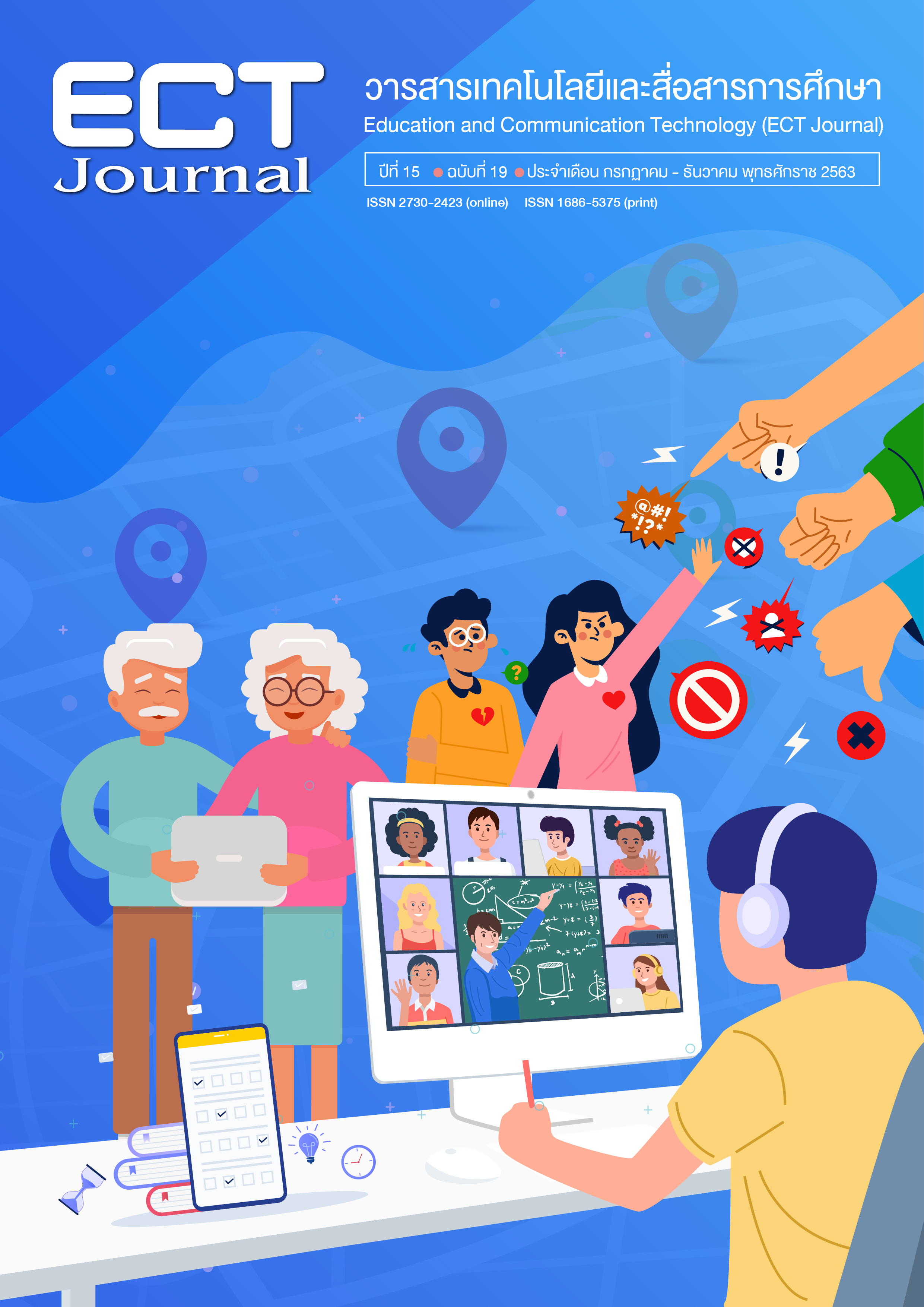The Use of Online Formative Assessment Tools for Promoting Achievement Test Scores of Mathayom Suksa Students in Chachoengsao Province by the Fourth Year Students Majoring in English Teaching
Keywords:
Keyword(s) : Online Formative Assessment Tools, The Fourth Year Students Majoring in English Teaching, Mathayom Suksa students in Chachoengsao ProvinceAbstract
The purposes of this research were to (1) compare with pre-post achievement test scores of Mathayom Suksa students (2) study attitude of Mathayom Suksa students and the fourth year students majoring in English Teaching. The sample groups were 10 groups of Mathayom Suksa students from 8 schools in Chachoengsao Province (total 283 students) learning English Subjects with ten fourth-year students majoring in English Teaching who enrolled in the EED401 Teaching Professional Experience 2 and EEN405 Integration to Teaching 2 in the second semester of the academic year 2019. The experimental instruments were 5 lesson plans per teacher student with 3 online formative assessment tools (Kahoot, Quizizz, Plickers) , pre-post achievement tests, and pre-post survey analysis of attitude. The statistics used in data analysis were mean value, standard deviation, and T-test.
. The findings were as follows:
- The Mathayom Suksa students’ achievement test scores after being taught by using online formative assessment tools were significantly higher at the 95-percent confidence.
- The Mathayom Suksa students’ attitudes after learning by using online formative assessment tools was at a high level (X = 4.44,
S.D. = 0.47). - The teacher students’ attitudes after teaching by using online formative assessment tools was the highest level (X = 4.62,
S.D. = 0.32).
References
Improving Student Engagement with Technology Tools.
Currents in Teaching & Learning, 8(2), 50-61.
National Institute of Education Testing Service. (n.d.).
Announcement and Report the Result of O-NET., from
http://www.newonetresult.niets.or.th/AnnouncementWeb/
Login.aspx [Retrieved June 15, 2019]
Spector, J. M., Ifenthaler, D., Sampson, D., Yang, L., Mukama, E.,
Warusavitarana, A., Dona, K. L., Eichhorn, K. Fluck, A. Huang,
R., Bridges, S. Lu, J. Ren, Y., Gui, X. Deneen, C. C., San Diego, J.
& Gibson, D. C. (2016). Technology Enhanced Formative
Assessment for 21st Century Learning. Journal of
Educational Technology & Society, 19(3), 58-71.
Unokphan, J., Suksai, P., & Onthanee, A,. (2018). “A Development of
Brain-based Learning Activities to Enhance English
Communication Ability and Happiness in Learning for Grade 6
Students”. Journal of Education Naresuan University. 20 (3),
35-48.
Wang, A. I., & Lieberoth, A. (2016). The Effect of Points and Audio on
Concentration, Engagement, Enjoyment, Learning, Motivation,
and Classroom Dynamics Using Kahoot!. Proceedings of the
European Conference on Games Based Learning, 1738-746.
Downloads
Published
How to Cite
Issue
Section
License
Copyright (c) 2020 มหาวิทยาลัยสุโขทัยธรรมาธิราช

This work is licensed under a Creative Commons Attribution-NonCommercial-NoDerivatives 4.0 International License.
1. ทรรศนะและข้อคิดเห็นใด ๆ ที่ปรากฏอยู่ในวารสาร ECT Education and Communication Technology Journal เป็นของผู้เขียนโดยเฉพาะ สำนักเทคโนโลยีการศึกษา มหาวิทยาลัยสุโขทัยธรรมาธิราช และกองบรรณาธิการไม่จำเป็นต้องเห็นพ้องด้วย
2. กองบรรณาธิการของสงวนลิขสิทธิ์ในการบรรณาธิการข้อเขียนทุกชิ้น เพื่อความเหมาะสมในการจัดพิมพ์เผยแพร่






